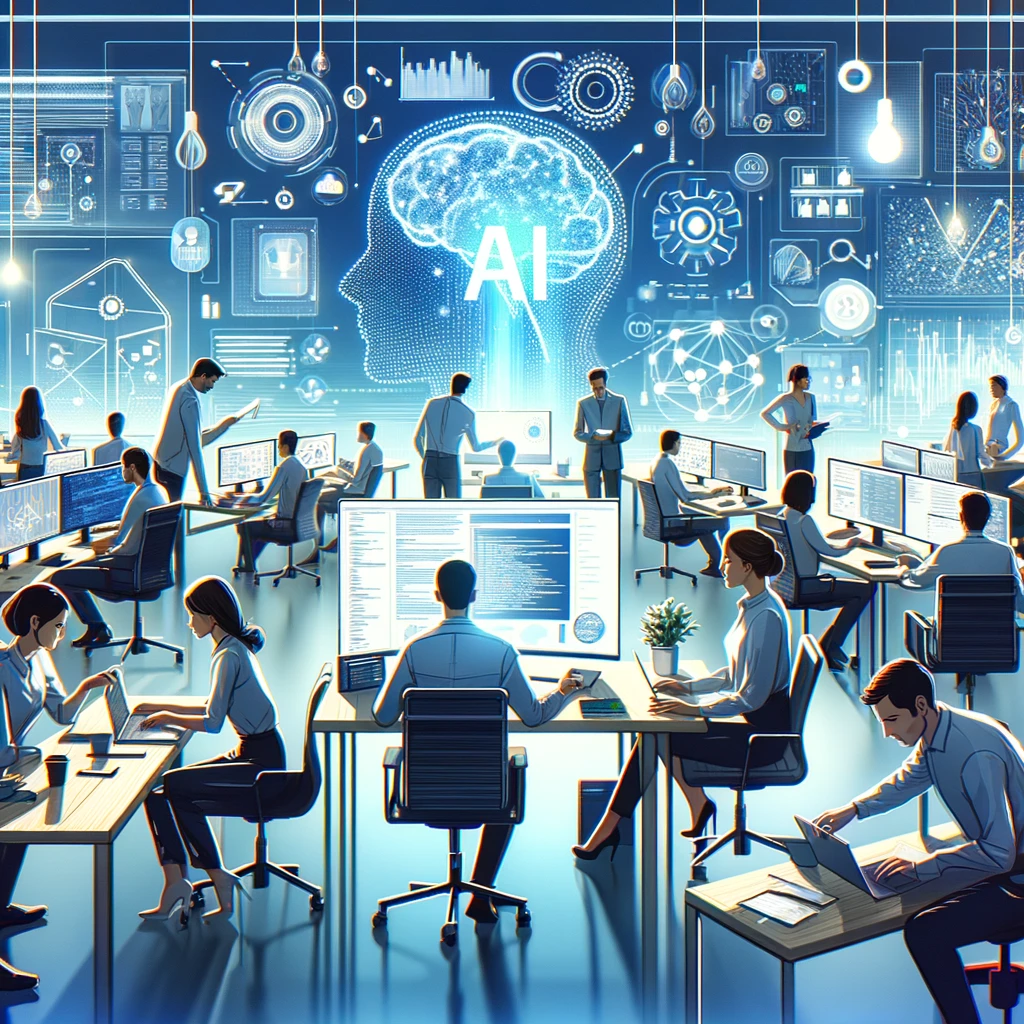Artificial Intelligence Summary
By: A Staff Writer
Updated on: Mar 27, 2024

Artificial Intelligence (AI) has become increasingly crucial for businesses as it presents opportunities for growth, efficiency, and competitive advantage. Here is a summary of AI concepts.
-
Defining Artificial Intelligence
Artificial Intelligence refers to developing computer systems that perform tasks that typically require human intelligence. These tasks include problem-solving, learning, perception, language understanding, and decision-making.
AI encompasses several subfields, including:
- Machine Learning
Machine learning (ML) is a subset of AI that focuses on algorithms and models that can learn from and make predictions or decisions based on data.
- Deep Learning
Deep learning, a subfield of ML, utilizes artificial neural networks to analyze, model, and learn from complex patterns in data. These networks can learn and improve their performance as they process more data.
- Natural Language Processing
Natural Language Processing (NLP) involves the development of decomposing the language by specialized algorithms and machine learning models that enable computers to understand, interpret, and generate human language.
- Computer Vision
Computer vision helps computers “see” – that is interpret and understand visual information from the world, such as images and videos.
AI Applications in Enterprises
- Business Analytics
AI can analyze, process, and synthesize data efficiently, providing actionable insights for decision-making and performance improvements.
- Customer Experience Enhancement
AI can personalize customer interactions, predict customer needs, and improve customer support through chatbots and virtual assistants.
- Process Automation
AI-powered automation can streamline repetitive tasks, improve accuracy, and reduce costs in various business processes.
- Human Resources
AI can assist in talent acquisition, employee engagement, and performance analysis, enabling organizations to make data-driven HR decisions.
- Cybersecurity
AI can detect anomalies and potential threats in real time, significantly enhancing an organization’s cybersecurity measures.
Developing an AI Strategy
- Identify Business Objectives
Determine which business challenges can be addressed using AI and how these solutions align with your organization’s goals.
- Choose the Right AI Technologies
Evaluate different AI technologies and select the best fit for your organization’s needs and objectives.
- Data Management
Develop a robust data management strategy to ensure the availability, quality, and security of data needed for AI systems.
- Talent Acquisition and Development
Attract and retain talent with AI expertise and invest in upskilling existing employees to meet AI-related demands.
- Ethical Considerations
Consider the ethical implications of AI deployment, including data privacy, transparency, and fairness.